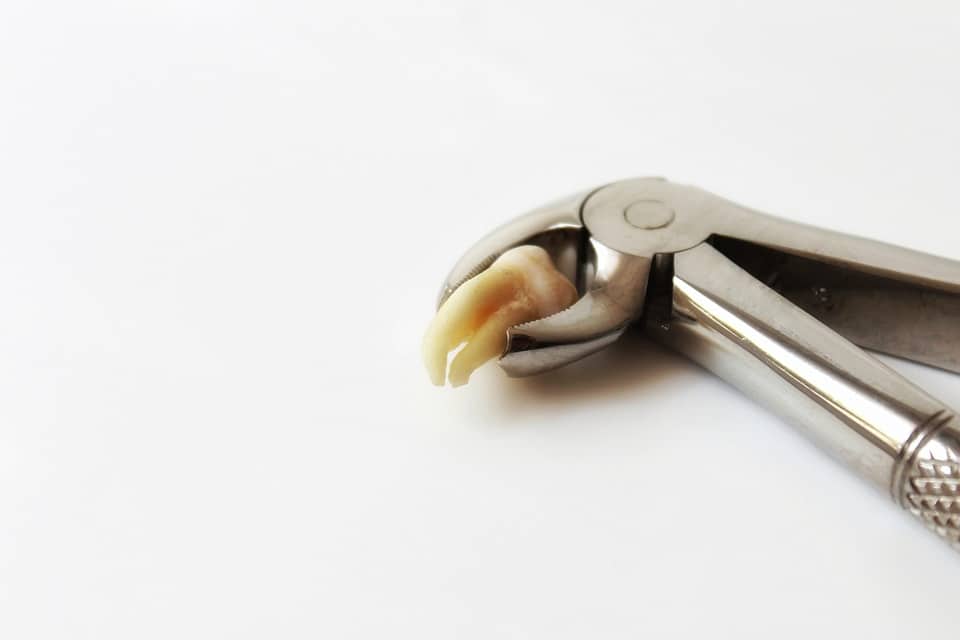
To keep the associated risks of a procedure in your knowledge is just for the purpose of information. Most tooth extractions go smooth, with some post surgical advises to be followed which normalizes the situation within 7 – 10 days! However, the discussion below, would positively help you, in case you are faced with any of the risky situations.
Improper Teeth Alignment
When a particular permanent tooth is extracted, the rest of the teeth may move, leading to misalignment of the teeth. This in turn causes changes in the bite. Such a situation requires further interventions, specifically orthodontic corrections in order correct the misalignment as well as biting issues, if any.
The missing tooth (or extracted tooth) on the other hand needs to be replaced as soon as possible. Restorative techniques are in plenty to serve this purpose. Dental implants, bridges, dentures etc. are few of the common tools in the hands of modern dentistry to cope up with the issue of a lost tooth!
A Bite Collapse
In some patients, particularly those who have had their back teeth removed, a bite collapse may occur. Better termed as loss of vertical dimension of occlusion, it involves moving of the lower jaw closer to the upper jaw. As a result of change in the occlusions, there are changes in the muscle contractions that eventually lead to symptoms such as dry, chapped or cracked lips.
Post-Surgical pain and other associated ills
Tooth extraction is associated with certain common post-surgical effects such as
- Pain
- Inflammation
- Bleeding and infection.
Most of it are normal phenomenon and will hopefully subside with time. Normally, anti-inflammatory and analgesic medicines are prescribed to help you alleviate from such situations. Only, continued bleeding and infection in the area are less common and requires further management like antibiotics etc.
Certain responsible medications
Certain medications like biphosphonates used in the treatment of osteoporosis or even some cancers, can adversely affect the healing process of certain tissues, including that of your jaws.
Osteoradionecrosis
Radiation treatment that have been directed towards the head and neck area sometime in the past, pose an increased risk of giving rise to a condition known as osteoradionecrosis post a tooth extraction surgery. Osteoradionecrosis involves the death of the bone to damage to the blood vessels by the effect of radiation. The bone that lies beneath the extracted tooth when destroyed, doesn’t leave room for restorative purposes like implants or dentures.
Dry Socket (Osteitis)
Remember, the doctor had asked you to hold the gauge (that he placed at the extraction site post the surgery) tight in that place for some time? The purpose is not allow the blood clot to be dislodged prematurely! When a tooth is extracted, a blood clot naturally forms over the area. If this clot gets dislodged, it can lead to a condition known as osteitis or dry socket.
Nerve Injury
A nerve injury is a rare complication. While performing the surgery this might happen due to the unpracticed hands of your surgeon or his carelessness. The outcome is a permanent feeling of numbness or tingling sensation in the area!
Maxillary Sinus Exposure
This issue is associated with the extraction of the upper molars. While extracting these teeth, it might expose a hole that opens into the maxillary sinus. This needs to be repaired immediately. A dental X-ray reveals the amount of sinus exposure and aids in determining the treatment alternatives.
A small awareness could sometimes be a great thing. There could be other risks connected to a particular case of tooth extraction. However, they would just be an exception. With the modern day use of proper anesthetics and post surgical care tips, extraction is an ordinary and easy going dental treatment methodology these days.
Although a surgical intervention can have many faceted complications, yet, the above discussion has pinpointed on the significant ones. Not that all of them are rare. Some post operative phenomena are common to almost all tooth extraction candidates and your dentist would normally aware you of the aftercare steps that you need to follow. The rare ones are important to be kept in knowledge. This will keep you from panicking in case any emergency situation arises!


